Progress on IDB Loan for Sustainable Fisheries Sector
Lobster and conch are the bedrock of Belize’s fisheries sector. More than three thousand fisher folks that directly benefit from the sector have been primarily fishing lobster and conch. There is however a growing concern that increased demand poses a threat to the nations lobster and conch stocks. In 2023, the Government of Belize signed a seven million U.S dollars loan with the Inter-American Development bank to support sustainable growth in Belize’s blue economy. Among its primary objectives is the adoption of sustainable technologies and best fishing practices by artisan fishers. News Five’s Paul Lopez was present at an IDB and Ministry of Blue Economy workshop in Belize City. He filed the following report.
Paul Lopez, Reporting
For decades, the two most important species contributing to economic growth within the fishing sector have been spiny lobster and queen conch. An Inter-American Development Bank study has found that lobster stocks in Belize may have reached its maximum sustainable yield, largely due to increased production levels and fishing pressures. On the other hand, conch is the most regulated fisheries in Belize, with a catch quota and conversion standards. However, according to IDB, the conch population over all its habit range is Belize is yet to be comprehensively evaluated.
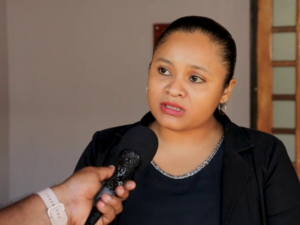
Felecia Cruz
Felecia Cruz, Director, Blue Economy
”Much of the fishing sector is founded on Lobster and conch. Nonetheless there are excellent opportunities with finfish. However, our stakeholders are much more accustomed to their traditional shallow water areas.”
Felecia Cruz, the Director at the Ministry of Blue Economy has been leading the charge in the execution of a fourteen million dollars IDB project to support sustainable growth in Belize’s blue economy sector. The loan agreement was first signed by Prime Minister John Briceño in September, 2023 at the Belize Investment Summit. Parliament approved the loan in October 2023.
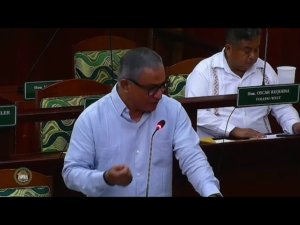
John Briceño
Prime Minister John Briceño (File: October 13th, 2023)
“There are a number of challenges we are facing, climate change being one of them. But also, as our population grows, we are having more and more fisher folks and it is important for us to look at what has happened in the region, because there was not proper regulation. We have used our marine products unsustainably. We can’t just say, oh we think we have fifty-thousand pounds of lobster in the sea and you take out fifty thousand when you only should take out thirty thousand.”
One of the main aspects of this project is to support the development of the finfish sector, decreasing the industry’s dependence on depleting lobster and conch stocks.
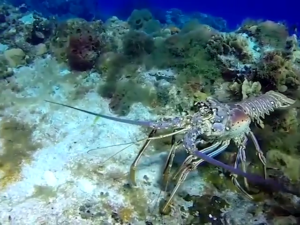
Felecia Cruz
“The hope is that we can now open access for new markets to have other products such as finfish out there, since traditionally they tend to go for lobster and conch, or stone crab.”
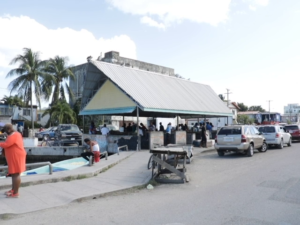 Revenue earned from Belize’s lobster and conch export has doubled over the last eight years with no signs of slowing down. These species act as a primary source of income for artisanal fishers. So if you ask them which of the three they prefer to fish, lobster would be at the top of their lists. Additionally, artisanal fisher folks require upgraded vessels and equipment to practice deep slope fishing for finfish. Investments are also needed to improve business skills and market locations. Mac has been buying and selling fish at the Conch Shell Bay Market for the past twenty-five years. He spoke with us off camera.
Revenue earned from Belize’s lobster and conch export has doubled over the last eight years with no signs of slowing down. These species act as a primary source of income for artisanal fishers. So if you ask them which of the three they prefer to fish, lobster would be at the top of their lists. Additionally, artisanal fisher folks require upgraded vessels and equipment to practice deep slope fishing for finfish. Investments are also needed to improve business skills and market locations. Mac has been buying and selling fish at the Conch Shell Bay Market for the past twenty-five years. He spoke with us off camera.
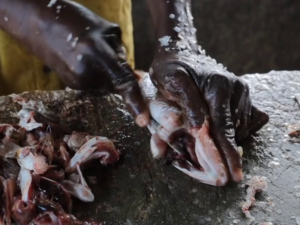
Mac
Mac, Fish Vendor
“Every time they move the market they don’t put a toilet, they don’t put a sensible water system, dig. So, out here on a whole they need to come wash down the market. The fire station use to come wash it, they don’t come back and wash down the place. Look how the place looks.”
Paul Lopez
“How sanitary this place is?”
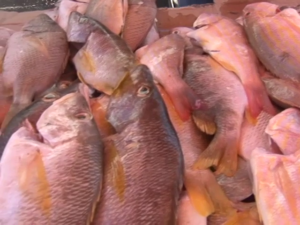 Mac
Mac
“Out of a ten I would call it a three, because this place needs to sanitize every month, every week. The fire station use to come wash down the place yo got something clean to start Monday morning with. Everything stop.”
Paul Lopez
“Would you say the sanitary concerns takes away from the income you can make?”
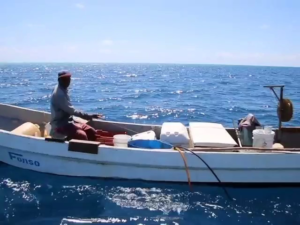
Mac
“By far because some people come and look at the place and say, I nuh wah buy from here because I prefer go to the boat. Because, they say what’s in the box is stale thing. So we have to wait until the boat nuh have nothing.”
Felecia Cruz
“We have been receiving a lot of feedback from our stakeholders on a need, to really provide the financial support that initial capital needed, to help them now diversify into a new fishing sector.”
Reporting for News Five, I am Paul Lopez.





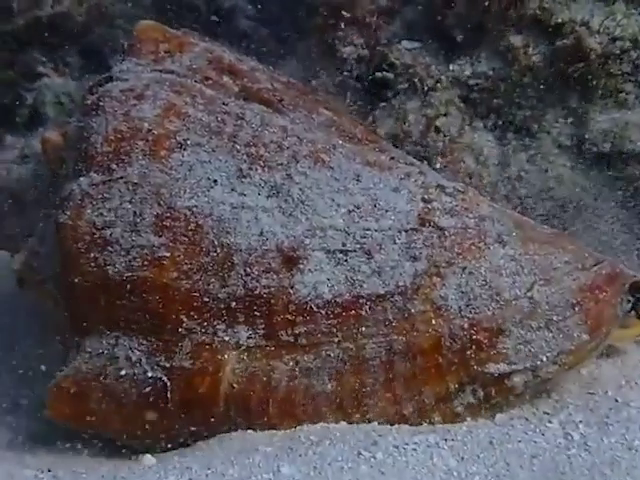

Facebook Comments